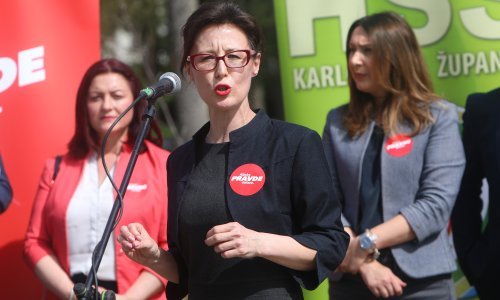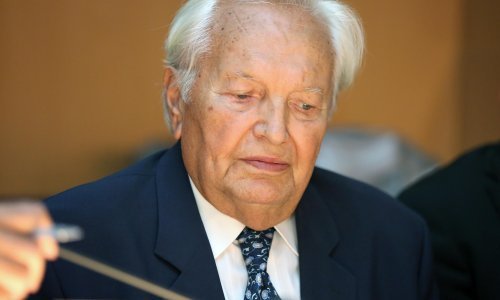Croatia marks the 20th anniversary of international recognition on Sunday, remembering 15 January 1992 when it was recognised by the member states of what was then the European Community (EC). Germany, which together with the Vatican played a key role in the process, established diplomatic relations with Croatia on the same day.
Franjo Gregoric, who at the time served as Croatia's prime minister, recalls how a large crowd of people spontaneously gathered in Zagreb's main square, Trg Bana Jelacica, in a festive mood to hail the joint decision of the EC members to recognise Croatia as an independent state, and were joined by President Franjo Tudjman.
"How could I have stayed in my office when my people are here. This has been a normal working day for me, but also a special one, a day we all have been living for, just like our ancestors. We have created an internationally recognised Croatia. Let's celebrate tonight and then roll up our sleeves to build a new democratic state," Gregoric quoted Tudjman as saying then.
Gregoric recalled telling Croatian Radio at the time: "The recognition of Croatia means a final confirmation of its struggle for independence and sovereignty. At the same time it is also an official confirmation that Yugoslavia is no more, which will make it easier and faster to end the dirty war against Croatia and to begin post-war reconstruction of the country."
He said that at a government session on the following day Deputy Foreign Minister Bozidar Gagro had announced then that Finland, Turkey, Chile and Argentina would recognise Croatia in the coming days. "Croatia was facing a huge task of establishing diplomatic relations, and it is little known that it was racing against time because it had already been decided that a UN peacekeeping force would be deployed in the crisis areas of Croatia," Gregoric said.
Gregoric said that the position of the EC Arbitration Commission was that Yugoslavia was in the process of disintegration, and added that it suited Croatia for the UN peacekeeping force to be deployed after 15 January 1992 because it meant that it would be deployed in an internationally recognised state.
The then Speaker of Parliament, Zarko Domljan, claims that the decision by the EC to recognise Croatia was prompted by the barbaric behaviour of the Yugoslav People's Army (JNA), which openly supported the idea of Serbian territorial expansion, and by a change in political relations among European countries where any obstruction by France and Britain could not have passed without damaging their own political and democratic credibility. He said that that was skilfully exploited by German diplomacy which, with the assistance of the Vatican and several other countries inclined to Croatia, took decisive action to ensure a recognition of Croatia.
Domljan recalled that some countries, such as Lithuania, Latvia, Estonia, Iceland, Ireland, Sweden, Norway, Poland, Ukraine, Canada, and Australia, had already previously recognised Croatia.
He said that Croatian parliamentary diplomacy had also played a huge role in laying the ground for the recognition of Croatia as an independent state, citing visits by Croatian multi-party delegations to the European Parliament, the Council of Europe Parliamentary Assembly, the North Atlantic Assembly and a number of national parliaments that had created a critical mass of pressure on their governments to recognise Croatia.
The then Foreign Minister Zvonimir Separovic said that the brutality of the Serbian military aggression and the horrors of war, especially pictures of Vukovar, Skabrnja, Dubrovnik and Vocin in the autumn of 1991, had had a crucial impact on the EC states to recognise Croatia. He said that the only good thing Europe had done was set up the Badinter Commission, which found that the Socialist Federal Republic of Yugoslavia had ceased to exist and that its nations had a right to self-determination.






![[VIDEO] Ništa od referenduma: Ustavni sud odbio oba pitanja Mosta o covid potvrdama! Pročitajte obrazloženje](/media/thumbnail/500x300/1699610.jpeg?cropId=2099189)





























